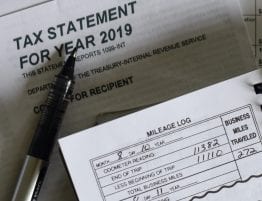
Authors don’t usually think of themselves as entrepreneurs; however, the IRS treats them the same as a small business. Whether you are selling the occasional eBook on Kindle or have bestsellers to your name, the IRS expects you to treat your writing as a business if you earn income from it. You are required to pay income tax on what you earn from your writing.
Whether you are a freelance writer, an author or a one-book success, any income you earn from the sale of books needs to be reported to the IRS. Authors are considered self-employed for tax purposes and, therefore, need to pay taxes the same way as a small business owner does.
Authors are treated as self-employed because their earnings do not come from an employer-employee relationship, instead, it comes from the sale of products. Since authors mostly earn income from royalties from various publishers and do not have an employer in the traditional sense, they are treated as small business owners by the IRS.
Taxes for the Self-Employed
Income of professional authors, both self-published and traditionally published, may be subject to self-employment tax if they earned $400 or more a year after deducting expenses, granted that the author is a U.S. citizen or resident. Any income from the sale of books within the U.S. or outside the U.S. needs to be reported as self-employment income.
Income from writing as a hobby, however, is treated differently. If an author is earning royalties from selling only one or two eBooks and is not earning substantial, consistent income from those sales, then they may report royalties on Schedule E (Form 1040). In other words, if writing is not a taxpayer’s business, but a hobby, then that author would not be considered self-employed.
There are both advantages and disadvantages to being self-employed as far as taxes are concerned. The self-employed enjoy certain tax benefits such as deductions like the home office deduction. They may also deduct losses/expenses that they incurred while conducting the business of writing. On the flip side, they need to report and pay all required taxes themselves as they do have an employer who would withhold taxes from their paycheck.
Importance of Record-Keeping
Whether you are a full-time author or a hobbyist, keeping meticulous records makes it easy to comply with the tax rules. Since authors receive income from a variety of sources – advances, eBook platforms, prizes, awards, etc. – record-keeping is vital for tracking income and the taxes withheld.
Creating a system for recording business expenses as they occur through the year goes a long way in deducting all qualifying expenses during tax time. Proper record-keeping removes the stress of scrambling for receipts at the last minute. It also helps reduce your tax liability, helping you pay less in taxes or even get a bigger refund.
Conclusion
Authors at the beginning of their writing career may be unaware of their tax obligations which could result in overpayment or underpayment with their tax return. Though paying more is akin to giving an interest free loan to the IRS, paying less can lead to back taxes. The most damaging thing about back taxes is that the originally owed amount keeps increasing with time due to penalties and interest until it is paid in full, or a resolution is reached with the IRS. To avoid back taxes, authors should know about their tax obligations so that they stay tax compliant and can focus on what’s important to them: their writing.








